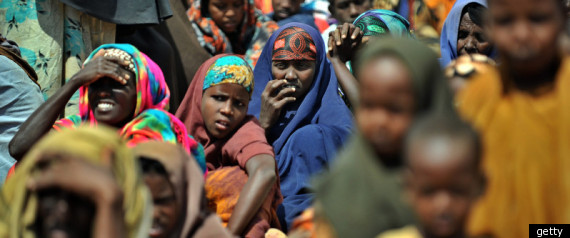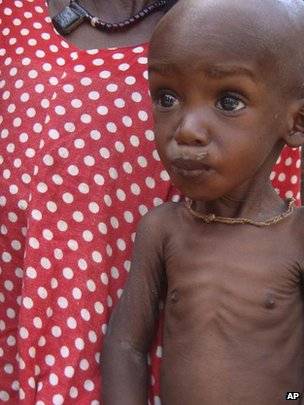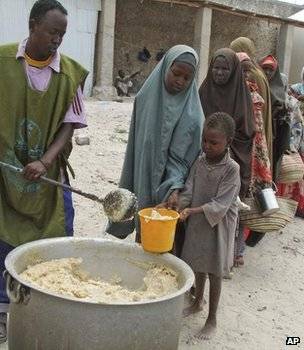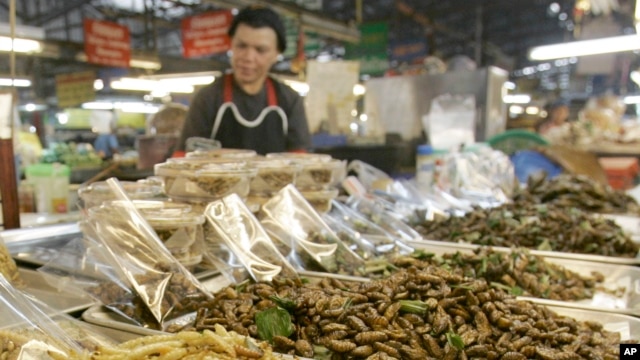Uganda Famine Could Be Next, United Nations Warn

Uganda Famine Could Be Next, United Nations Warn

GENEVA, Aug 2 (Reuters) - Uganda could be the next country hit by alarming malnutrition rates due to drought which has already sparked famine in southern Somalia and hunger in Kenya, Ethiopia and Djibouti, the United Nations warned on Tuesday.
Pockets of food insecurity have already been detected in drought-hit northern areas of Uganda, east Africa's third largest economy, the U.N.'s Food and Agriculture Organization (FAO) said.
"Uganda may be the next country hit with these same sort of alarming malnutrition and drought conditions," the FAO's Sandra Aviles told a news briefing.
An estimated 815,000 people in drought-prone northern Uganda, mainly in the Karamoja region , currently face moderate food insecurity, corresponding to phase two on a U.N. scale where five means famine, she said.
Prices for maize, Uganda's main crop, went up by 67 percent between June and July due to a delay in the harvest and the effect of greater demand from neighbouring Kenya and southern Sudan, according to Shukri Ahmed, senior economist at the FAO.
"Maize prices are currently almost four times their level of the previous year. That price rise will be an added burden," he told Reuters. "Another factor is the high fuel prices."
But rainfall in the rainy season of September-October is forecast to be average to above average for most of Uganda, he said.
Famine has been declared in two regions of southern Somalia but may soon engulf as many as six more regions of the lawless nation, the U.N. humanitarian chief said on Monday.
Some 12.4 million people in Kenya, Ethiopia, Somalia and Djibouti are already in dire need of help due to the worst drought in 60 years, U.N. under-secretary-general and emergency relief coordinator Valerie Amos said in New York.
APPEAL TO AIR CARRIERS
The world body appealed on Tuesday to air carriers to provide free or heavily discounted cargo space to transport food to starving children in the region.
"There are over 2.3 million acutely malnourished children in the Horn of Africa. More than half a million will die if they do not get help within weeks," Marixie Mercado of the U.N. Children's Fund (UNICEF) said.
Tens of thousands of Somalis have already died from starvation or diseases caused by it, half of them children under age five, the United Nations says.
UNICEF has 5,000 tonnes of therapeutic and supplementary food supplies stored in France, Belgium and Italy, enough to feed 300,000 malnourished children for a month. The agency needs to bring 400 tonnes of supplies to its regional hub in Nairobi each week by air, a costly operation, until it can set up a food pipeline by sea in about 6 weeks.
With therapeutic feeding, a malnourished child can fully recover in 4 to 6 weeks, Mercado said.
British Airways , Lufthansa , UPS and Virgin have offered to transport between 15 to 50 tonnes per week for a limited period, she said.
Cargolux, Europe's largest all-cargo airline, has offered to bring 107 tonnes from Luxembourg to Nairobi, she said.
Uganda Famine Could Be Next, United Nations Warn







